
阅读·实修·转化
696 Two years after the "Xiamen Gathering Case", the Dilemma of China's Rights Protection Movement | Chu Bailiang
Beast Press: There has been no news from Xu Zhiyong for a long time. Today, I read the article "The Dilemma of China's Rights Protection Movement Two Years After the "Xiamen Gathering Case" by Chu Bailiang on the Chinese website of the New York Times, and I learned that they are waiting for trial. “Two years after the party that weekend in December 2019, two of the most prominent attendees — Xu Zhiyong and Ding Jiaxi — are awaiting trial on charges of subversion of state power related to that party, according to the indictment. Relevant. Police and prosecutors seized on that weekend gathering to deal a heavy blow to China’s beleaguered “rights defense” movement, launched by lawyers and activists seeking democratic change.”
Xu Zhiyong (born on March 2, 1973), a native of Minquan County, Shangqiu, Henan Province, China, one of the founders of Gongmeng, the main founder and iconic figure of the New Citizens Movement, a famous young Chinese jurist, constitutional scholar and citizen rights defender of leaders. Representative of the 13th and 14th People's Congress of Haidian District, Beijing. Advocate citizens to protect their rights and interests in a non-violent way, demand the government of the People's Republic of China to give citizens equal rights to education, require officials to disclose property, and punish corruption. On the morning of January 26, 2014, the Beijing No. 1 Intermediate People's Court sentenced Xu Zhiyong to four years in prison for the crime of "gathering a crowd to disrupt order in a public place". On April 11, the Beijing Higher People's Court rejected Xu Zhiyong's appeal and upheld the original verdict.
In 1973, Xu Zhiyong was born in Minquan County, Henan Province. In 1990, he studied at the Law Department of Lanzhou University and obtained a bachelor's degree in law. In 1995, he re-entered the Law Department of Lanzhou University to study for a master's degree in law. In his 1998 graduation thesis "On the Economic Misunderstanding of the Localization of Economic Law", he criticized Zhu Suli, a jurist known for opposing Westernization, emphasizing local values, and advocating the rule of law to serve the overall situation. Failed to get a master's degree. From July 1998 to September 1999, he practiced in "Southern Weekend" and other units. In 1999, he studied at Peking University Law School, under the tutelage of Zhu Suli, and obtained his Juris Doctor degree in 2002. The main initiator of "Equal Rights in Education" actively advocates equal access to higher education regardless of household registration. He has made outstanding contributions to the work of "non-Beijing residents and Beijing residents enjoy equal treatment during compulsory education" in Beijing.
Since 2002, he has been a lecturer at the School of Grammar and Law of Beijing University of Posts and Telecommunications. In November 2003, he was elected as a deputy to the People's Congress of Haidian District, Beijing, and was re-elected in 2006. In the second half of 2005, he was a visiting scholar at the Center for Chinese Law Studies of Yale University. Since 2009, Xu Zhiyong has been deprived of class qualifications. On July 30, 2011, Xu Zhiyong and Cui Zheng held a wedding, and the witness was Li Changping. In April 2013, Xu Zhiyong was placed under house arrest. He was detained by the police on July 16 of the same year, formally arrested on August 2, and transferred to the prosecution on December 4. He was tried on January 22, 2014 and sentenced to four years in prison on January 26.
On July 15, 2017, Xu Zhiyong was released from prison after serving his sentence and left the prison in the suburbs of Beijing. He was in good health and was very saddened by the news of Liu Xiaobo's death.
On February 15, 2020, Xu Zhiyong, who had been evading pursuit since attending a meeting of human rights lawyers in Xiamen, was taken away by the police from lawyer Yang Bin's Guangzhou home.
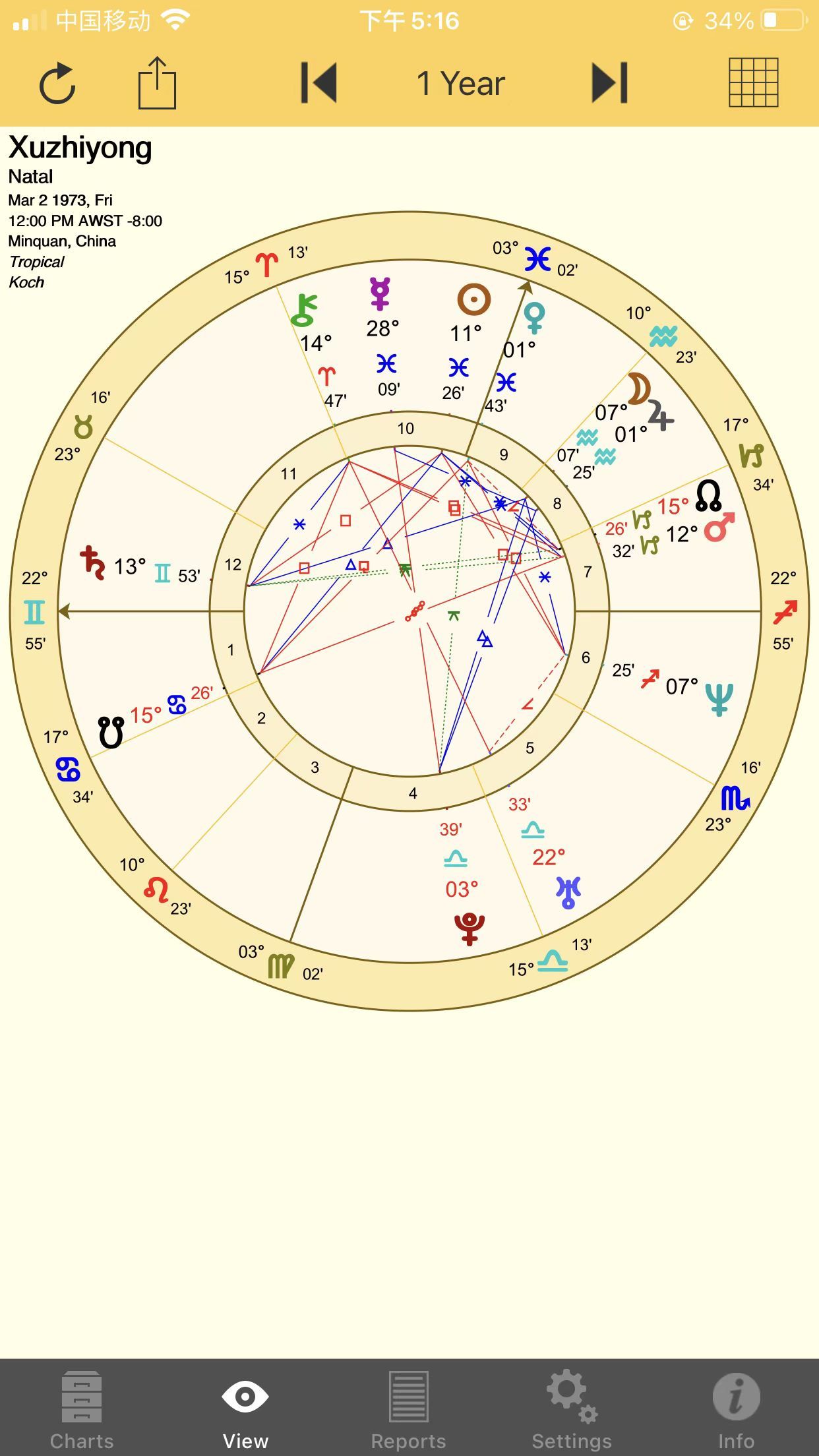
In 2003, Sun Zhigang was beaten to death at the Guangzhou shelter, and Xu Zhiyong first entered the public eye in the "Three Doctors Letter Incident". Xu Zhiyong and two other Juris Doctors, Yu Jiang and Teng Biao, jointly signed a letter to the Standing Committee of the National People's Congress, requesting that the "Measures for the Custody and Repatriation of Vagrant and Beggars in Urban Areas" be reviewed for unconstitutionality, and the system of custody and repatriation should be abolished, thus promoting the abolition of the measures . In October of the same year, Xu Zhiyong, Teng Biao, Yu Jiang and Zhang Xingshui co-founded the "Sunshine Constitutional Government Social Science Research Center" (referred to as "Sunshine Constitutional Government"), a non-profit non-profit organization.
In 2004, he worked with legal scholars such as Fan Yafeng, Teng Biao, Qiu Feng, Wang Yi and other legal scholars to draft and complete the "Proposal for Improving the Human Rights Protection Clauses of my country's Constitution", and proposed a comprehensive revision of the human rights protection clauses of the Chinese Constitution to form a complete human rights protection system. Suggest. In 2005, Sunshine Xiandao Social Science Research Center was unable to continue to register with the Beijing Civil Affairs Bureau, and changed its name to "Beijing Gongmeng Consulting Co., Ltd." (referred to as Gongmeng) and registered with the Beijing Administration for Industry and Commerce. In the same year, in order to write the "China Petition Report", Xu Zhiyong lived in the "petition village" of Beijing South Railway Station for two months. He also visited the "black prison" in the capital where petitioners were imprisoned many times, and was beaten by lawbreakers. At the beginning of 2006, he presided over the writing of the 2005 Annual Report on Human Rights Development in China. In December of the same year, Gongmeng began to investigate and study the living conditions and legal guarantees of schools for migrant children mainly in Beijing, and began to pay attention to the suffering of children of new immigrants in cities. educational rights. In 2007, he chaired a research report on the Linkage between Domestic Law and the International Covenant on Civil and Political Rights.
In June 2008, Xu Zhiyong and Gongmeng vigorously assisted Beijing human rights lawyers to promote the democratic election of the Beijing Lawyers Association. In late August, lawyers drafted articles such as "Following the Trend of History and Realizing the Direct Election of the Lawyers Association - An Appeal to All Beijing Lawyers, the Municipal Judicial Bureau, and the Beijing Lawyers Association" and "Beijing Lawyers Association Election Procedure (Draft)". It spread rapidly on the Internet and attracted attention from all walks of life. In mid-September, letters were sent to nearly 16,000 lawyers in Beijing. On September 13, the website "Lawyer Salon" run by directly elected lawyers was put into operation. In November, the "Open Letter on Urging the Lawyers Association to Audit and Disclose Finances" was issued to the Beijing Municipal Bureau of Justice and the Beijing Lawyers Association. In December, the Fifth Congress of the Seventh Beijing Lawyers Association was held. The meeting reviewed and approved the Articles of Association of Beijing Lawyers Association. The campaign to promote direct elections by the Lawyers Association ended in failure. In July 2009, Gongmeng was banned by the government and accused Xu Zhiyong of being "suspected of tax evasion". On August 13, he was formally arrested on the name of "tax evasion", and was released on bail pending trial. He was temporarily freed.
In March 2010, "Gongmeng" changed its name to "Citizen" and continued to engage in public welfare rights protection activities. "Citizen" was initiated and established by Xu Zhiyong, Wang Gongquan, Li Xiongbing, Teng Biao, and Li Fangping. It aims to establish a democratic rule of law system that restrains power and rationally and constructively promote democracy, rule of law and social justice. The organization launched the New Citizenship Movement which advocated the New Citizenship Spirit with the theme of "Freedom, Justice, and Love". On August 21 of the same year, the Beijing Municipal Public Security Bureau released Xu Zhiyong's release on bail pending trial.
In November 2011, Xu Zhiyong participated in the election of the grassroots people's congress in the Beiyou constituency of Haidian District, Beijing. Official candidates include Fang Binxing, president of Beiyou University. Xu Zhiyong was obstructed by the officials in the election process and failed to be included in the official candidate list. The total number of valid votes is more than 22,000 (one vote can vote for multiple people). Among them, more than 3,500 people voted for Xu Zhiyong by "filling in another person", but they lost more than 16,000 votes to the enemy Binxing and finally lost.
On November 15, 2012, after Xi Jinping was elected general secretary at the 18th National Congress of the Communist Party of China, Xu Zhiyong issued "An Open Letter to Mr. Xi Jinping: A Citizen's Reflections on the Destiny of the Nation". On November 24, Xu Zhiyong was taken away by Beijing State Security personnel. On December 22, the Chinese website of The New York Times published "A Chinese Mourns for a Self-immolated Tibetan", focusing on Tibetans who "died for freedom" in the series of self-immolation incidents in Tibetan areas.
On February 26, 2013, a leaflet was distributed at the entrance of the Beijing subway station, calling on citizens without Beijing hukou to gather in front of the Beijing Municipal Education Commission Building on February 28 to express their voice for equal rights to education. On the 27th, he was summoned by the Beijing National Security Bureau. On April 12 of the same year, Xu Zhiyong was invited by the Chinese University of Hong Kong and Teng Biao, and planned to go to Hong Kong to participate in the "Seminar on the 10th Anniversary of the Sun Zhigang Case". After passing the border check at the airport, his personal freedom was restricted, and he was placed under house arrest since then. On July 16, he was formally detained on suspicion of "gathering a crowd to disrupt order in a public place", triggering widespread protests. On August 22, Xu Zhiyong was formally arrested.
In April 2019, Xu Zhiyong published the action initiative of "Election 2021: Rooted in the Community, Serving the Society, and Run for the District and County People's Congress in 2021" on the Internet, calling on supporters to participate in the grass-roots district and county people's congress elections to actually conduct democratic drills, Engaging the people in democratic self-government by winning voter support.
In January 2020, Xu Zhiyong published an open letter to Xi Jinping, "The Letter of Persuasion to Resign", persuading Xi Jinping to take the initiative to step down. At this point, Xu Zhiyong was on the run, evading a mass arrest by the authorities after Chinese democrats held a seminar in Xiamen last December. He was taken away by the police in Guangzhou on February 15.
On June 20, 2020, Xu Zhiyong was arrested by Shandong police.
On January 22, 2014, the court hearing of Xu Zhiyong's case was held in Beijing. Xu Zhiyong and his two lawyers protested with silence most of the time, but Xu Zhiyong used the opportunity of his final statement to publish "For Freedom, Justice, and Love" was interrupted by the judge during his court speech. Legal experts and human rights advocates say Xu's indictment is deeply flawed. Authorities did not allow his lawyers to question the prosecution's witnesses, whose testimony was only presented to the court in writing, and the witnesses did not appear in court. The court also does not allow defense attorneys to call witnesses. Diplomats from Western countries tried to sit in, but were refused, and journalists who went to cover the trial were expelled. On the 26th, the Beijing No. 1 Intermediate People's Court sentenced Xu Zhiyong to four years in prison for the crime of "gathering a crowd to disrupt order in public places". Xu Zhiyong said in court: "Today's court is destroying the last bit of dignity of the rule of law in China." On April 11, the Beijing Higher People's Court rejected Xu Zhiyong's appeal and upheld the original verdict.
On April 11, 2014, on the same day as Xu Zhiyong's final judgment, Hua Ze and Teng Biao co-edited "The Collected Works of Xu Zhiyong: Being a Citizen in Dignity - My Free China" was officially released in Hong Kong.
In an exclusive interview with the Economic Observer in 2008, Xu Zhiyong said that he has a heroic complex and that what he does has a Gandhi color, he said:
"I think the reform China is facing is not only the reform of the political system, but also the reform of the political culture. Modern civilized politics should not only have a constitutional system, but also a group of people who are the first promoters of the constitutional system to make the constitutional system work well. , I think our generation has to play this role. In the past, many people engaged in politics depended on how many people and how many guns I had, but I think that is a kind of violent force, we have to go to the other extreme, go to To the extreme, use one's own commitment and one's own suffering to awaken the kind side of human nature, until this kind of kindness becomes the mainstream of the whole society, so that those tyrannical atmospheres will disappear, and those savage and violent traditions will be completely suppressed, and they will become the last stream. , and only on this basis can this society truly build a modern civilized country."
In an interview with Xu Zhiyong by "Southern People Weekly", Xu Zhiyong said that in the current real society of China, the development of legislation is average, but because the democratic system has not kept up with the development of the times, the supervision and restraint of public power is not enough. The abuse of power over law has led to the imperfect rule of law manifested in law enforcement and judicial levels. And revealed to reporters the motivation for what he is doing so far:
"With a sound democratic system, such as real and open elections, power will be constrained. Coupled with the transformation of political culture by powerful moral forces in the process of improving the democratic system, the democratic system can function well. This is what we have been promoting. The motivation for institutional building.”
In an interview with Esquire magazine in 2009 on the topic of the Chinese dream and after being arrested in 2013, Xu Zhiyong was handcuffed in prison. He talked about his Chinese dream respectively:
"I hope we are a free and happy country. Everyone does not need to violate their conscience, and can find a suitable position only by relying on their own talents and virtues; in a simple and happy society, the goodness of human nature is maximized and the evil is maximized. Suppression; honesty, credit, friendship, mutual assistance will become the norm in our lives, there will be no so many troubles and anger, and everyone has a pure smile on their faces. No matter what this society becomes, no matter how distorted and absurd this country is, it It takes a group of brave citizens to stand up and follow their beliefs and turn their rights, responsibilities and dreams into reality."
On January 22, 2014, Xu Zhiyong's statement in the courtroom of the Beijing No. 1 Intermediate People's Court was interrupted by a judge, and then the media published his views publicly on the Internet:
"...More than 137 countries and regions around the world have established a public property disclosure system for officials, why can't China? What is the "public servant" afraid of? Don't be too greedy, unrighteous wealth will not only bring you a luxurious life, At the same time, there is deep fear and unease, as well as anger and hatred from the people.... The values and dimensions of modern democracy are rooted in universal human nature, not eastern or western, not socialism or capitalism, but Universal for all mankind....The root of a series of major social problems is that a privileged interest group monopolizes all the political power and economic lifeline of the country....We are citizens of the new era, conceptually , completely bid farewell to the autocratic consciousness of the enemy, the country, overthrow, and overthrow, adhere to the belief in freedom, justice, and love, completely bid farewell to conspiracy, violence and other barbaric patterns in behavior, promote social progress through peaceful reform, and grow healthily in the sun. ...There are too many dark and bitter souls in this nation that need to be redeemed, and there is too much vigilance, fear and hostility between people, these devils buried in the soul must be exorcised, but this exorcism The process is not hatred, but redemption."
In July 2018, one year after his release from prison, Xu Zhiyong wrote an article "Four Years in the Distance" about life in prison and his outlook on China's future, expressing his expectations for building a beautiful China of "freedom, justice and love". .
legal aid
In July 2003, he defended the case of Dawu Group's suspected illegal absorption of public deposits, and Sun Dawu was successfully released.
In February 2004, he accepted the invitation to act as one of the agents in the case of Yu Huafeng, the general manager of Southern Metropolis Daily.
In 2005, he worked with Gao Zhisheng, Teng Biao, Li Heping, Fan Yafeng and others to rescue lawyer Zhu Jiuhu, who was arrested on charges of disturbing public order for representing a private oil case in northern Shaanxi.
In 2006, he provided legal aid to Chen Guangcheng, a well-known rights defender, and was beaten many times during the handling of the case.
In August 2007, Xu Zhiyong and Teng Biao were entrusted by the victims of Shanxi black brick kilns Chen Xiaojun and Pang Feihu to provide legal assistance.
In September 2008, the melamine milk powder incident broke out. Xu Zhiyong and Gongmeng provided legal assistance for the victims of melamine milk powder and did a lot of work.
In December 2010, the Qian Yunhui incident occurred in Yueqing, Zhejiang. Xu Zhiyong and others formed a citizen investigation team to investigate and came to the conclusion that the Qian Yunhui case was an ordinary traffic accident.
honor
In December and April 2003, Xu Zhiyong, Teng Biao and Yu Jiang were selected as "2003 Top Ten Legal Figures" by China Central Television and the National Legal Popularization Office of the Ministry of Justice.
In 2003, he received the "Social Achievement Award" from the Gleitsman Foundation.
At the end of 2003, won the "South Wind Window" "for the public interest" social conscience award.
In 2005, he was selected as "Asian Man of the Year 2005" by "Asia Weekly".
In 2006, he was selected as the "Top Ten Young Leaders of the Year" by "Southern People Weekly".
In 2008, he was selected as one of the "120 Representatives of Social Progress in the 30 Years of Reform and Opening-up".
In December 2013, Xu Zhiyong and Wang Gongquan were selected as "2013 Top 100 Global Thinkers" by Foreign Policy magazine.
In May 2014, along with Liu Xiaobo, he won the "2014 Democracy Award" from the US NGO "National Endowment for Democracy". On May 29, the award ceremony was held in the office building of the US House of Representatives in Washington.
family and friends
Xu Zhiyong's girlfriend, Li Qiaochu, is also a human rights activist. After Xu Yongzhi was arrested in February 2020, Li Qiaochu was also taken away, restricted from residence and under surveillance, and was not released until June of the same year. After his release, Li Qiaochu made public the process of being imprisoned many times. On February 6, 2021, he disclosed on Facebook that his boyfriend was tortured in the detention center. He was detained that night. subversion" word. Because Li Qiaochu's revelations included Xu Zhiyong's period of time in detention, he could only eat one steamed bun per day, so Li Qiaochu's arrest can be said to be "incitement to subvert state power caused by one steamed bun."
Evaluation
In his article "Our Progressive Age" written in 2007, Internet columnist Xu Zhiyuan called Xu Zhiyong a person full of passion and pure faith, and speculated that Xu Zhiyong was because of his life experience at the bottom of the society and his family upbringing, making him a He has an instinctive sympathy for the disadvantaged groups in society, so seeking justice has evolved into the most important part of Xu Zhiyong's blood. In 2009, after Xu Zhiyong was arrested, he wrote an article called "Our Generation", in which he reviewed Xu Zhiyong's previous efforts and commented on Xu Zhiyong and other collaborators: "Full of responsibility for the society. With deep affection, I want to help strangers in distress through my legal knowledge, so as to reduce the injustice in this society and give hope to those who are pessimistic and powerless.”
Rights activist Wang Haiyang said: "Xu Zhiyong has the spirit of law, the concept of the rule of law and his good wishes. His good wish is to make this country, through the rule of law, make everyone get a kind of (with their own talents) suitable. His social status, eradicating the phenomenon of people oppressing and humiliating people,... When the black prison guard beat him, he let him beat him, because he was upright and awe-inspiring, so that those who had beaten him could hear him when they saw him. Run away from the wind. This kind of spirit is too rare and too precious for the Chinese.”
Two years after the "Xiamen Gathering Case", the plight of China's rights protection movement
Chu Bailiang
January 10, 2022
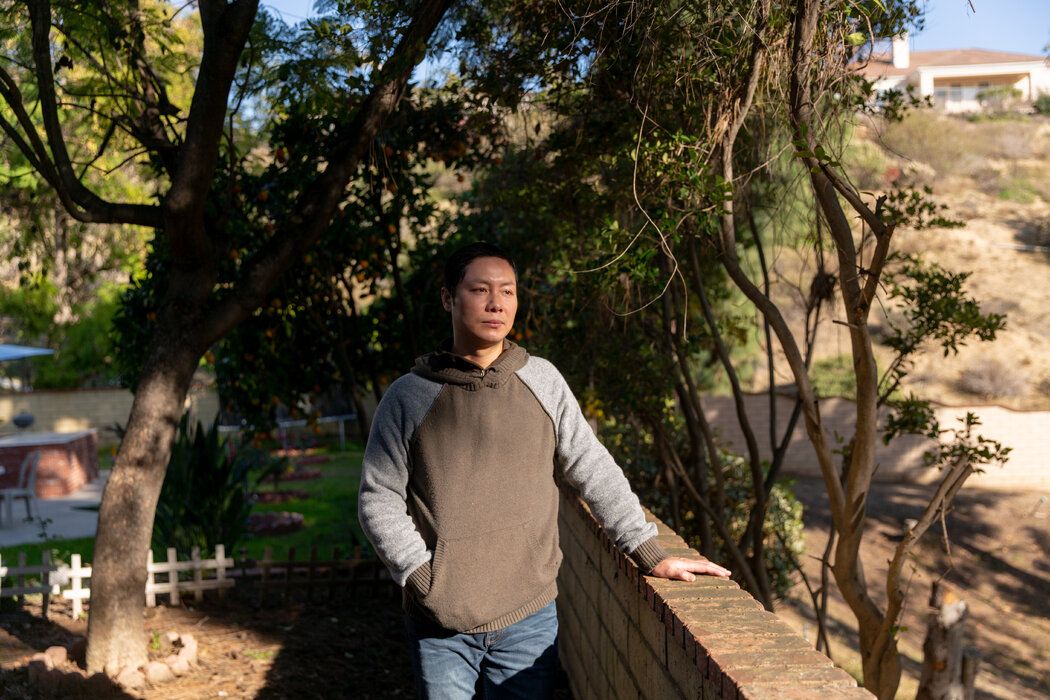
About 20 lawyers and activists made their way to a bells and whistles rental villa on the Chinese coast called the "Xiamen Nice NICE Villa Party". They ordered takeout, sang to the karaoke machine, and played table football. But they also have a serious purpose: to discuss the beleaguered human rights movement in China.
Two years after the party that weekend in December 2019, the two most prominent attendees — Xu Zhiyong and Ding Jiaxi — are awaiting trial on charges of subversion related to that party, according to the indictment. . Police and prosecutors seized that weekend gathering to deal a heavy blow to China's beleaguered "human rights" movement, launched by lawyers and activists seeking democratic change.
Such gatherings, once common among participants in China's human rights movement, have become increasingly dangerous under Xi Jinping's hard-line rule. Under Xi Jinping, many of the publications, research institutes and groups that once kept China's independent-minded activists afloat have disappeared.
As Xi prepares to prolong his era in power, those who still speak out wonder how China's rights movement can survive under the ever-tightening cover of surveillance, house arrest, criminal detention and trials.
“This shows that they are afraid of China’s civic consciousness and the small embryo of civil society,” said Liu Sifang, a teacher and amateur musician who attended the gathering and now lives in Los Angeles, in an interview. He fled abroad in late 2019 after police began arresting those who attended the villa party. Liu Sifang said Chinese border police had prevented his wife from coming to reunite with him.
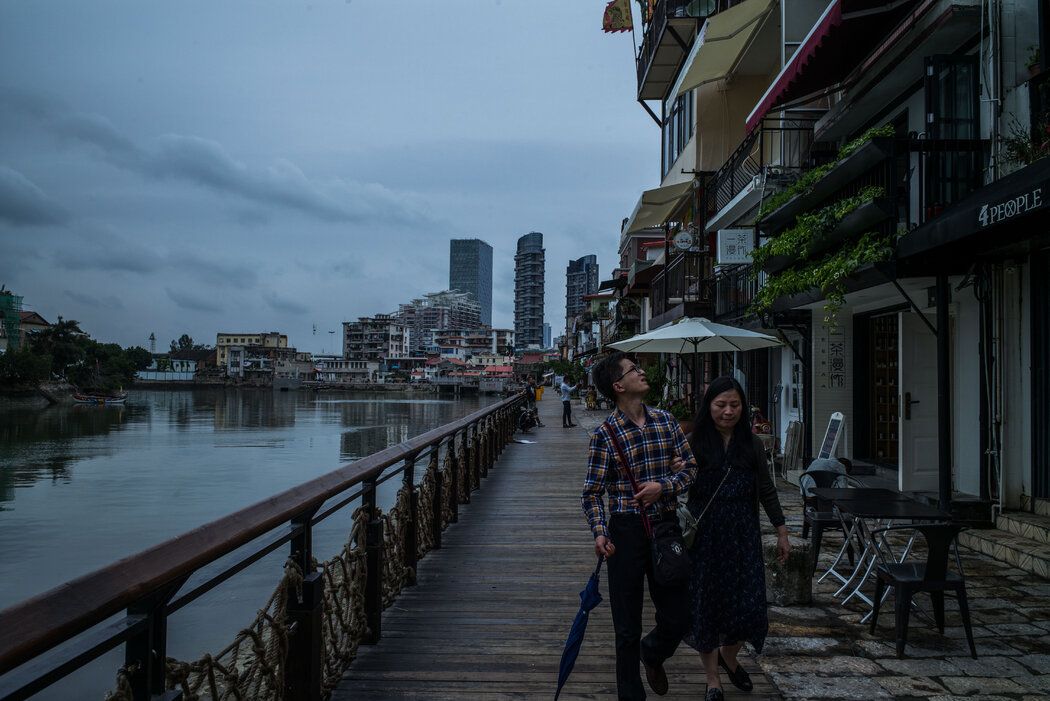
"They didn't want to allow these signs to exist," Liu Sifang said, "so our small gathering was seen as a major political event."
The day after that two-day gathering, while they were having lunch at a restaurant, some people noticed that they appeared to be being watched and photographed. Liu Sifang said that even if they were being monitored, most of them thought it might at best result in them being briefly detained and severely questioned by the police who monitor them. .
They were wrong.
Several people who attended that weekend gathering in the eastern Chinese city of Xiamen were quickly detained by police and held for weeks or months before being released. One of the attendees was lawyer Chang Weiping, who was arrested and held twice before being arrested on subversion charges. He had said in the video that interrogators used torture on him during his first detention.
Xu Zhiyong, 48, and Ding Jiaxi, 54, have both told their lawyers that their actions were not illegal, but if they are found guilty by a court controlled by the CCP, which seems almost inevitable, they will face 10 years or even longer prison terms. Some experts and supporters had expected them to stand trial by the end of 2021. But the court did not issue an announcement about the trial before the end of last year. They are still waiting to hear when the court will hear it, possibly in the run-up to the Winter Olympics, which are scheduled to be held in Beijing next month.
While Western governments are primarily concerned with the mass internment of Uighurs in the Xinjiang region, the indictments of Xu Zhiyong and Ding Jiaxi underscore the CCP’s nationwide crackdown on dissidents. Public security officials have vowed to root out any political opposition in preparation for the party's national congress later in 2022, when Xi will receive a third five-year term as top leader.
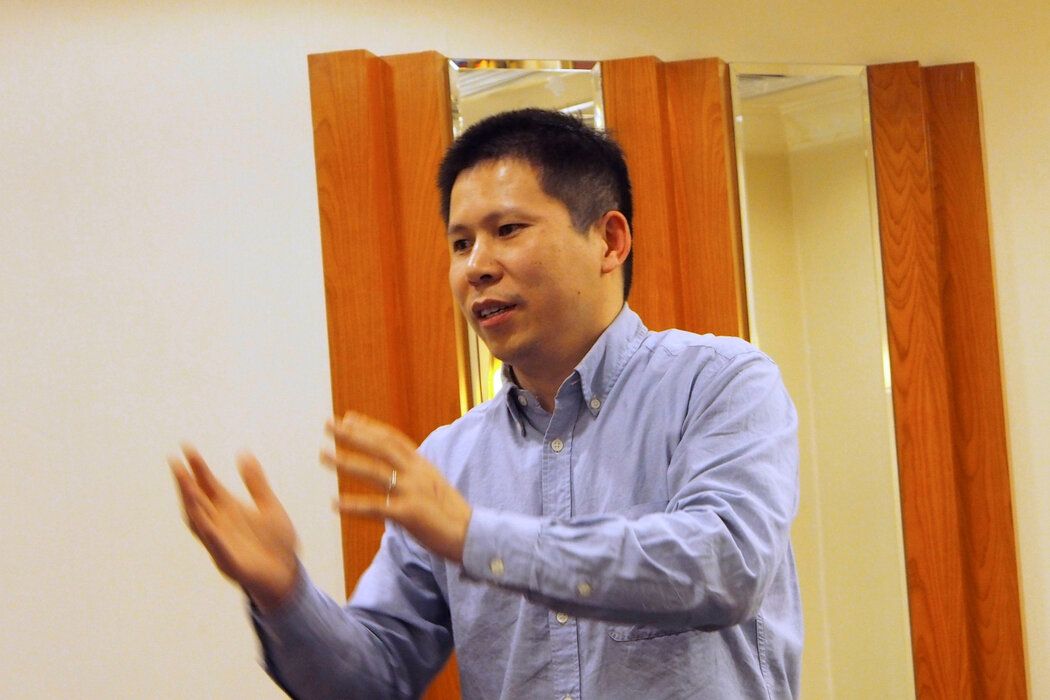
“He and Xu Zhiyong are full of confidence,” said Ding Jiaxi’s wife, Sophie Luo, who lives in the United States and has been campaigning for their release. "That's their belief and that's their weakness, I can say that. They think history is moving towards democracy and freedom."
A decade before Xi Jinping took power in late 2012, Xu Zhiyong was already one of China's most prominent human rights advocates.
Xu Zhiyong sometimes points out with a smile that his hometown in rural central China is called Minquan County, which means "people's rights." He rose to fame in 2003 when he and two other classmates at Peking University Law School launched a successful campaign to abolish the widely criticized detention and repatriation system used by Chinese cities for discriminated migrant workers.
Over the next decade, Xu Zhiyong and other human rights lawyers took on cases that exposed flaws in China's legal system in an attempt to awaken citizens' initiative and expand their rights. They represented clients including farmers whose land had been confiscated, farmers who claimed to have suffered Prisoners who were tortured by police to extract confessions, and citizens who were jailed in black jails for trying to petition central government officials.
"We must find a growth path for political power outside the system," Xu Zhiyong wrote in his manifesto of faith, "A Beautiful China." The way forward, he said, was to find ways for independent social groups to "grow in the cracks of authoritarianism."
In 2012, Ding Jiaxi, an engineer and later successful business lawyer, joined the cause.
He and Xu Zhiyong began to promote the "New Citizens Movement," encouraging Chinese to exercise their rights enshrined on paper in China's constitution: freedom of association, freedom of speech, and a say in the government. Xu Zhiyong is a theoretician of the cause, and Ding Jiaxi likes to meet supporters.
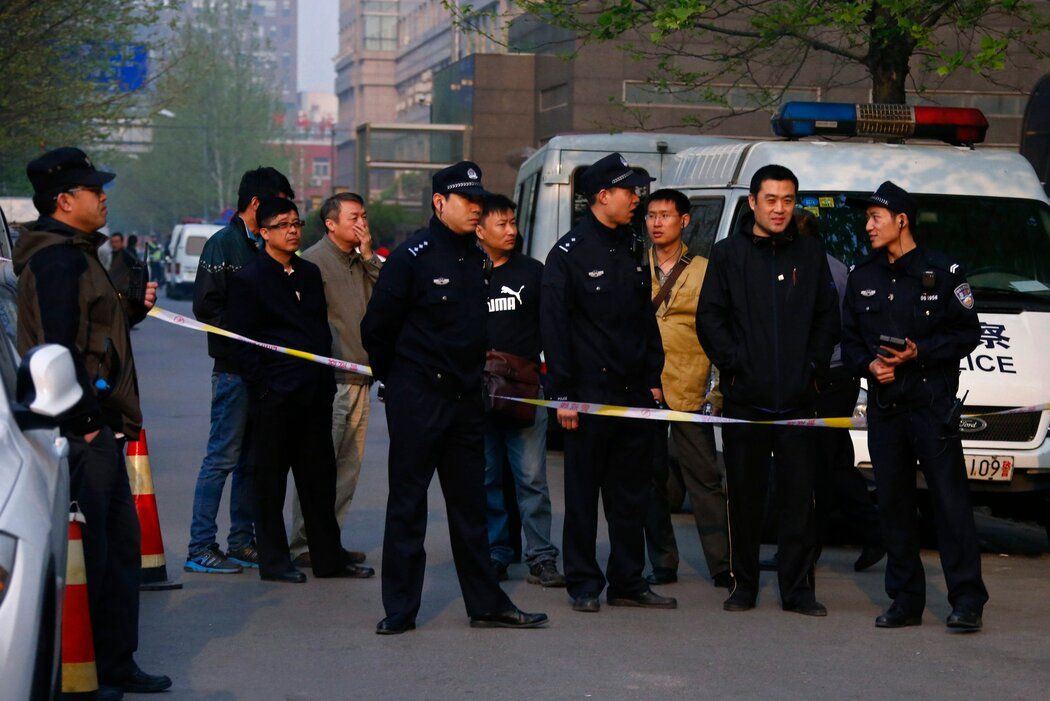
Ding Jiaxi and Xu Zhiyong initially seemed hopeful that Xi Jinping's government would not be tougher than their predecessors. But they were detained in 2013 after publishing an open letter urging China's most powerful officials to reveal their wealth. They were convicted in 2014, with Xu Zhiyong sentenced to four years and Ding Jiaxi to three-and-a-half years.
Over the next few years, more and more human rights activists and outspoken lawyers were detained, and some were jailed. Still, Xu Zhiyong and Ding Jiaxi have quietly reconnected with people sympathetic to their cause after their release in 2017. While Xi Jinping has been tightening his grip on politics, Xu Zhiyong and Ding Jiaxi appear hopeful that the party's rule is more fragile than many outsiders believe.
“They just want the movement to continue,” said Chinese human rights lawyer Teng Biao, a longtime friend of Xu Zhiyong, in a telephone interview.
"They know the stakes are bigger than before," said Teng Biao, now a visiting professor at the University of Chicago. "But they didn't expect this to lead to a massive crackdown."
In 2018, Xu Zhiyong and Ding Jiaxi gathered with like-minded friends and acquaintances in Shandong province in eastern China to discuss their careers while relaxing.
When they met again at their villa in Xiamen a year later, no one noticed anything worrisome, said Liu Sifang, a composer who attended the gathering.
The attendees thought they were temporarily free from the police officers sent to watch them. But the police found them anyway.
After 18 days, police arrests began.
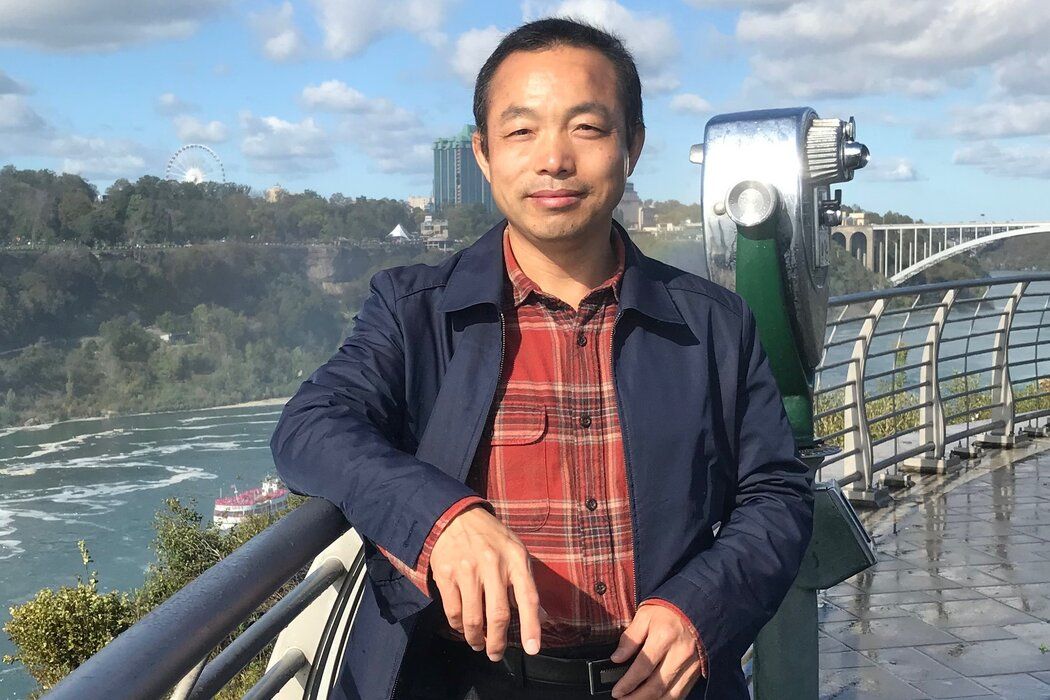
Among those arrested was Ding Jiaxi, who later told his lawyer that investigators kept him from sleeping for ten days and ten nights and played him an endlessly flattering documentary about Chinese leader Xi Jinping at deafening levels.
Xu Zhiyong went into hiding and for some time lived in the home of a former prosecutor in southern China.
By then, the virus had spread in China, sparking anger that the government had not acted sooner to contain the virus. Xu Zhiyong sent a letter of persuasion in his hiding place calling for Xi Jinping to step down, saying that Xi Jinping was "going against the trend of history".
In mid-February 2020, Xu Zhiyong was arrested. Xu Zhiyong's girlfriend, Li Qiaochu, was also detained again and formally arrested. She publicly stated what happened to Xu Zhiyong and her own experience of being secretly detained.
Xi now appears confident that China has largely brought the spread of the virus under control, and the United States, Britain and other Western countries have suffered waves of infections and deaths that have made many Chinese feel less of the West. Xi Jinping's power appears to be more consolidated, and the CCP has officially named Xi Jinping one of its great leaders.
But Xu Zhiyong, who was awaiting trial in Shandong province, did not give in, Liang Xiaojun said. Liang Xiaojun, who was one of Xu Zhiyong's lawyers, was recently disbarred by Chinese authorities for his remarks on political and human rights issues.
"I think he is in the state of a revolutionary, and he doesn't think about other things, except to build a better China," Liang Xiaojun said of his last meeting with Xu Zhiyong in late November last year. Despite this, Liang Xiaojun also said: "If they thought that the consequences would be so serious, I don't think they would go to this meeting."
Chris Buckley is the chief China correspondent for The New York Times. He grew up in Sydney, Australia and has lived in China for most of the past 30 years. Before joining The New York Times in 2012, he was a reporter for Reuters. Follow him on Twitter: @ChuBailiang.
Translation: The New York Times Chinese website
Like my work?
Don't forget to support or like, so I know you are with me..
Comment…